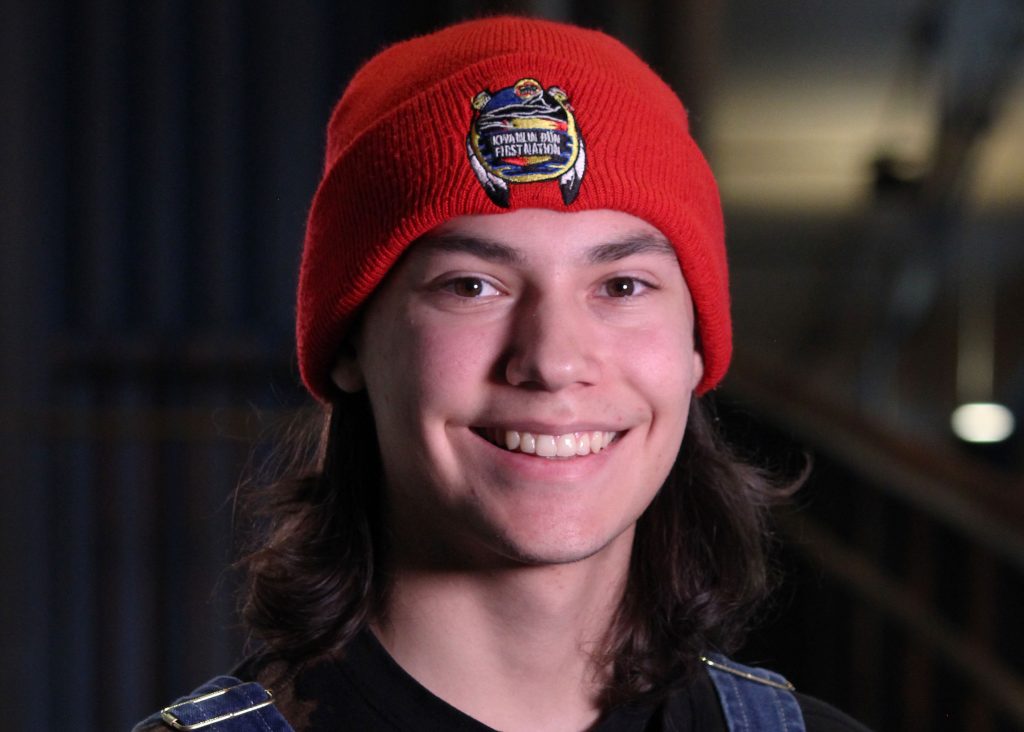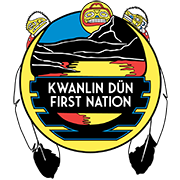Unlocking a ‘whole other perspective on the world’
For the past year, Ä́yįnzhìa Cory Holway has been learning Dákwänjē (Southern Tutchone) as part of the Youth Today, Language Leaders Tomorrow program.
By Leighann Chalykoff

Ä́yįnzhìa Cory Holway was never excited to go to school until he started learning Dákwänjē (Southern Tutchone).
“I feel like I am still a baby in the language,” he says. “I am excited to learn every new word.”
Since November 2021, Cory has been working with the Yukon Native Language Centre through the Youth Today, Language Leaders Tomorrow program. Through the program, 12 Yukon youth have been learning Dákwänjē and Łingít through classroom work, conversations with Elders and proficient speakers, and by spending time on the land.
For Cory, learning Dákwänjē has opened up “a whole other perspective on the world” and new ways of thinking.
“There is knowledge embedded in the language,” he says. “There are teachings that can only be understood in Dákwänjē, and it’s really fulfilling to be able to unlock some of that knowledge.
“Through the language, you imagine how things used to be, and how we can bring some of those things back to make the world a better place.”
There is useful information in traditional place names, and words can carry wisdom connected to long ago stories. Certain words can also demonstrate different worldviews. For example, in Dákwänjē the word kenädän means both teaching and learning, while in English the two are quite different concepts.
“I am learning how to lead and project my voice because our voices have lots of power in them,” says Cory. “If you sharpen the way you use your tongue, it can be stronger than any weapon.”
Words can protect. They can influence and give hope. And they can be agents of change.
Cory’s first exposure to learning native languages was not a positive experience.
“I have a story to tell that brought me a lot of pain at the time,” he says. “When I was in high school, I went into the classroom where native language was taught and I saw the Łingít “X” on the wall. It’s a really hard sound to make and I tried to read it, and all the kids laughed at me.”
“I got nervous, and so I started laughing too. Then the teacher came in and started yelling at me because I was laughing. It was a pretty bad feeling. It doesn’t feel good on your spirit.”
Today, when Cory speaks Dákwänjē people have told him it sounds like he’s singing. The tones and inflections used in words can change their meaning. He says, Dákwänjē helps him to think before he speaks. And now, with the help of the Łingít learners in his class he is able to pronounce his father and cousins’ traditional names.
“If we pick up our languages again there are no limits,” he says. “I am going to take this momentum that I have and run with it.”
As his language learning continues, Cory has also accepted a job with KDFN as a Language and Culture Connector.
Cory has some advice if you’re just beginning your language journey:
- Don’t be afraid to make mistakes.
- Be prepared to have your mind blown in a good way. As you learn, you’ll understand more about our place names, our stories and culture.
- Be patient. There’s a long way to go to becoming a fluent speaker.
